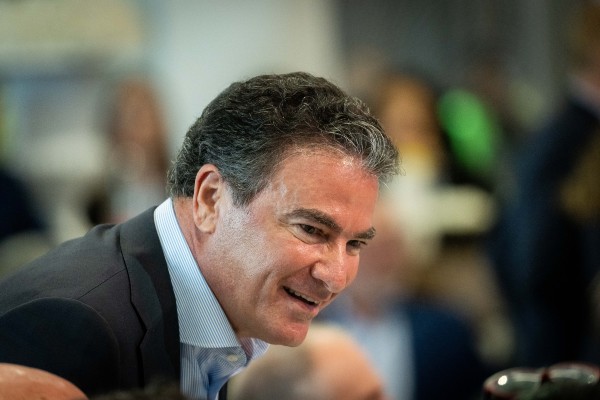“The statement that Iran is in a better situation than it was in the past, in my opinion, based on the intelligence material that I read several months ago — this statement is not true,” said former Mossad director Yossi Cohen.
By Pesach Benson, United With Israel
Former Mossad director Yossi Cohen said on Tuesday that Iran is not close to developing nuclear weapons. His remarks came as Foreign Minister Yair Lapid prepared to discuss the Iranian threat with with U.S. officials in Washington.
“I think that at the end of the day, Iran is not close to reaching any nuclear weapons. It is no closer than before, and that’s thanks to the great effort we made,” Cohen said at the Jerusalem Post Conference.
“This is due to longstanding efforts by some forces in the world,” he added. Cohen was presumably referring to the theft of Iranian nuclear documents, the assassination of Tehran’s top atomic scientist and other acts of sabotage widely attributed to Israel.
“The statement that Iran is in a better situation than it was in the past, in my opinion, based on the intelligence material that I read several months ago — this statement is not true,” said Cohen, who stepped down from his position in June. Cohen was succeeded by his deputy, David Barnea.
“The Iranians have less capability to do things than they did in the past,” Cohen noted. “They have less international support for what they’re doing.”
In response to a question about Israel’s lack of bunker-busting bombs, Cohen responded that Israel would simply have to find a way on its own to stop the Iranians.
“We have to develop capabilities to allow us to be absolutely independent, doing what Israel has done twice before.” Cohen was alluding to Israeli air strikes on Iraq’s Osirak reactor in 1981 and Syria’s reactor in Al Kibar in 2007. Cohen hastened to add, “They should not sleep quietly in Iran.”
Cohen’s remarks undercut Foreign Minister Yair Lapid. On Tuesday, Lapid told U.S. National Security Adviser Jake Sullivan that Iran is “becoming a nuclear threshold state,” the Times of Israel reported. Lapid is due to hold talks with U.S. Secretary of State Antony Blinken on Washington’s efforts to engage Iran diplomatically. Returning the U.S. to the JCPOA nuclear agreement with Iran is a key foreign policy goal for President Joe Biden.
Israel opposes the U.S. returning to the JCPOA, and in recent weeks, Prime Minister Naftali Bennett and Defense Minister Benny Gantz have emphasized that Iran is making critical headway towards an atomic breakthrough.
Addressing the UN in September, Bennett said, “Iran’s nuclear program has hit a watershed moment,” while at a more recent press conference with German chancellor Angela Merkel, the Prime Minister said, “In the last three years, the Iranians have made a giant leap forward in their nuclear enrichment capability.”
Cohen has been viewed by many as a potential political heir to Benjamin Netanyahu. The former Prime Minister frequently entrusted the intelligence chief with sensitive talks with Arab leaders. The Jerusalem Post noted that Cohen, who currently works at SoftBank as head of investment operations, deflected questions about any plans about going into politics.
